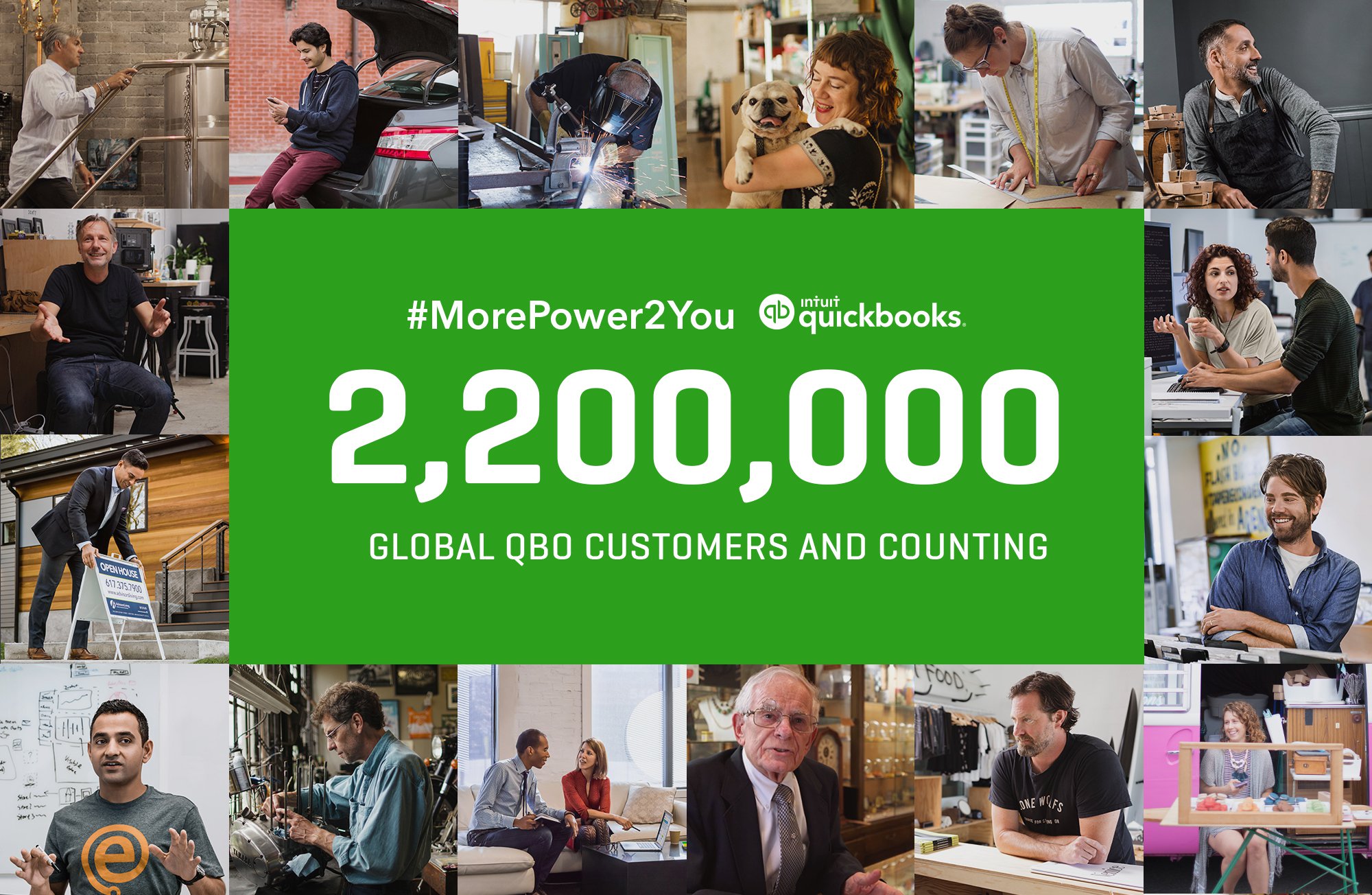In 1962, Marshall McLuhan predicted the emergence of a “global village” brought on by a new “electronic interdependence.” Over fifty years later, his vision is a tangible reality. A new version of Main Street is being built on global platforms as communities of people communicate on Facebook and Twitter, buy and sell on Amazon and eBay, and find work on LinkedIn and UpWork.
While the arrival of the global village has rightly been attributed to the rise of these mega-platforms, I believe that the future belongs to those who have always made Main Street prosper – small business owners and entrepreneurs.
This future success is not a foregone conclusion. Entrepreneurs will always face an uphill fight. They face competition from giant global corporations with deep pockets. They are diverse and fragmented. They don’t have a strong, unified voice. They struggle just to stay afloat – the Small Business Administration consistently reports that half of all small businesses cease operations within five years.
At Intuit®, we believe we are in a unique position to use technology to tip the odds in favor of entrepreneurs. With more than two million subscribers, QuickBooks® Online is the largest global platform for small businesses and the self-employed. It is their global village, the community where they come together with their most trusted advisors and partners to unlock their collective power.
There is major transformation already underway in the small business economy that will guide the way we build QuickBooks over the coming years. These transformations are:
- Small businesses will face a new age of competition – cloud computing enables entrepreneurs to build and grow businesses at a scale previously available only to big corporations.
- Small businesses will be smarter – machine learning is enabling entrepreneurs to gain deep insights from their data and tackle age-old problems like access to credit.
- Small businesses will serve radically different customers – the next generation of consumers is digital natives who will have vastly different expectations and shopping habits.
- Accounting will be disrupted – virtually all data entry tasks will be automated, freeing accounting professionals to deliver value-add services to entrepreneurs.
Let me take you under the hood to describe where we’re going in more detail.
Small Businesses Will Face a New Age of Competition
A new generation of entrepreneurs is leveraging the power of cloud computing to compete on a global scale in ways that were unimaginable a decade ago. Today, a start-up can instantly plug into Amazon Web Services for pay-as-you go IT, accept payments from customers around the world through Stripe and then tap into an on-demand platform, such as Fiverr, to sell their services.
Cloud computing is a strategic lever that small businesses simply need to be able to pull in this new age of competition. That’s because the cloud is eliminating what has historically been the single biggest disadvantage that small businesses and the self-employed have faced when trying to compete with big corporations – the ability to compete at scale.
The cloud turns fixed costs into variable costs, allowing entrepreneurs to scale their operations up and down and only pay for what they use. It delivers technology-enabled solutions in seconds and minutes, not days or weeks. And, it is accessible anywhere, allowing entrepreneurs to collaborate with customers and partners, change direction, and respond to market changes almost anytime, anywhere.
Intuit research shows that 62 percent of U.S. small businesses are already operating their business in the cloud, up from 37 percent three years ago. And, more than 70 percent of new QuickBooks users now choose the cloud version instead of the on-premise software.
The benefits of using the cloud for accounting are clear. Using machine learning, QuickBooks Online eliminates much of the time-consuming data entry once associated with bookkeeping. QuickBooks Online learns and categorizes over 70 percent of transactions, saving small businesses an average of 11 hours a month. QuickBooks also helps small businesses better understand their business because all their data is in one place. In fact, it takes less than five minutes for a new QuickBooks Online customer to generate their first profit and loss report.
Over the coming years, we will accelerate our ability to automate much of the work traditionally associated with accounting. In fact, our vision is to automatically do the work for the top accounting tasks – from balancing the books, to processing payroll, to filing taxes. We will transform QuickBooks from an accounting software product that eliminates work to a source of value-add information that automatically surfaces the most important information about a business.
Small Businesses Will Be Smarter
Automating manual tasks is just the beginning. The true game-changer for small businesses comes from being able to makes sense of the vast amount of data that flows through the cloud. And, it’s no stretch to say that we’re in the midst of a data revolution. An estimated 90 percent of the world’s data was created within the last two years, and projections show that by 2020, a third of all data will pass through the cloud.
Until recently, the ability to connect all of the data that runs through the back-office of a business was available only to large enterprises that could afford custom ERP (Enterprise Resource Planning) software. Today, QuickBooks allows small businesses to connect data from all of their applications – everything from payments and payroll apps to inventory and CRM solutions. And, new agreements with JPMorgan Chase and Wells Fargo give customers greater control over their financial data. The end result is that QuickBooks is now the source of truth where entrepreneurs can see a simple, integrated view of how money flows in and out of their business.
Over the coming years, QuickBooks will deliver new solutions to age-old small business problems. Take, for example, small business lending. According to a new Federal Reserve study , access to credit ranks as the top challenge faced by small businesses. This is because it can be challenging for small businesses to demonstrate their credit-worthiness. Indeed, many small businesses are forced to use their personal FICO score to attempt to demonstrate their credit-worthiness. The Federal Reserve study found that 67 percent of small businesses (those with annual revenues under $1 million) were unable to secure all of the funding they sought. And, 76 percent of business owners turned to personal funds to fill the gap.
By leveraging the collective power of data from over two million small businesses, QuickBooks will make it easier for small businesses to access the financing they need. That’s because QuickBooks data allows small businesses to show both a complete picture of their historical financials, and a snapshot of what future cash flows look like. This more holistic view of a small business will dramatically increase the odds of getting funding, and reduce the rates small businesses are charged.
Small Businesses Will Serve Radically Different Customers
All of the power of the cloud and machine learning only goes so far. The fundamental challenge most small businesses and self-employed people will always face is finding that next customer. And, the expectations of customers are going to look very different in the years ahead.
Small businesses and the self-employed will need to meet a new generation of customers where they are – on apps and in their phones. What we’re seeing in the U.S. isn’t even at the leading edge; the Chinese app WeChat has over 800 million active users who spend upwards of 70 minutes a day on the app, doing everything from ordering food, to buying cloths, to paying bills.
Over the coming years, QuickBooks will evolve so that small businesses can use it at the point of need. For example, approximately 500,000 QuickBooks customers use Gmail to communicate with their customers. Thanks to a new partnership between Intuit and Google, these customers can now send QuickBooks invoices to their clients directly from Gmail, helping them save time and get paid faster.
Another, very different, way that QuickBooks will serve customers at the point of need is by seamlessly connecting with the platforms small businesses use to reach customers. One example of this is an integration between Etsy and QuickBooks Self-Employed that provides instant insights into cash flow by automatically categorizing sales data so that sellers can see their real income, including total expenses and profit. Another example is the integration between QuickBooks and Shopify, which eliminates the need for manual reconciliation of sales deposits, bank fees and sales tax. All transactions, including sales and refunds, flow into QuickBooks with no extra work required.
Accounting Will Be Disrupted
Just as the emergence of cloud computing, the data revolution and the evolving expectations of customers are fundamentally changing the way small businesses operate, so, too, must accounting professionals rethink how they provide value.
Automation is going to eliminate some of the services accounting professionals have traditionally provided, particularly manual data entry. Yet, far from being a death knell for the profession, automation should be seen as a massive opportunity for reinvention. Eighty-nine percent of small businesses say they are more successful when working with an accounting professional. This is not going to change. QuickBooks may be able to crunch and categorize numbers faster than a human, but only a trusted advisor will ever be able to truly guide a small business through the big decisions.
The successful accounting professionals of the future will be those who act as strategic advisors, guiding small businesses through the big decisions. QuickBooks will facilitate this new relationship by acting as the platform where small business and accountants connect. For example, the Find-a-ProAdvisor® marketplace makes it easy for a small business to tap into the network of 200,000 QuickBooks ProAdvisor accountants. And, new practice management functionality serves as a central place for accounting professionals to effortlessly and seamlessly manage workflow, client communications and daily operations.
A Global Village of Small Businesses
There are 50 million small businesses (those with fewer than 20 employees) and 750 million self-employed (those with no employees) around the world today. When they dare to dream, new jobs are created, innovative new products and services hit the market, and prosperity spreads in communities around the world. QuickBooks is laser-focused on bringing them together through the global village, so that they can prosper in ways that were previously unimaginable.












